Faiza Yousuf’s Mission to Get Women in Tech the Recognition and Representation They Deserve
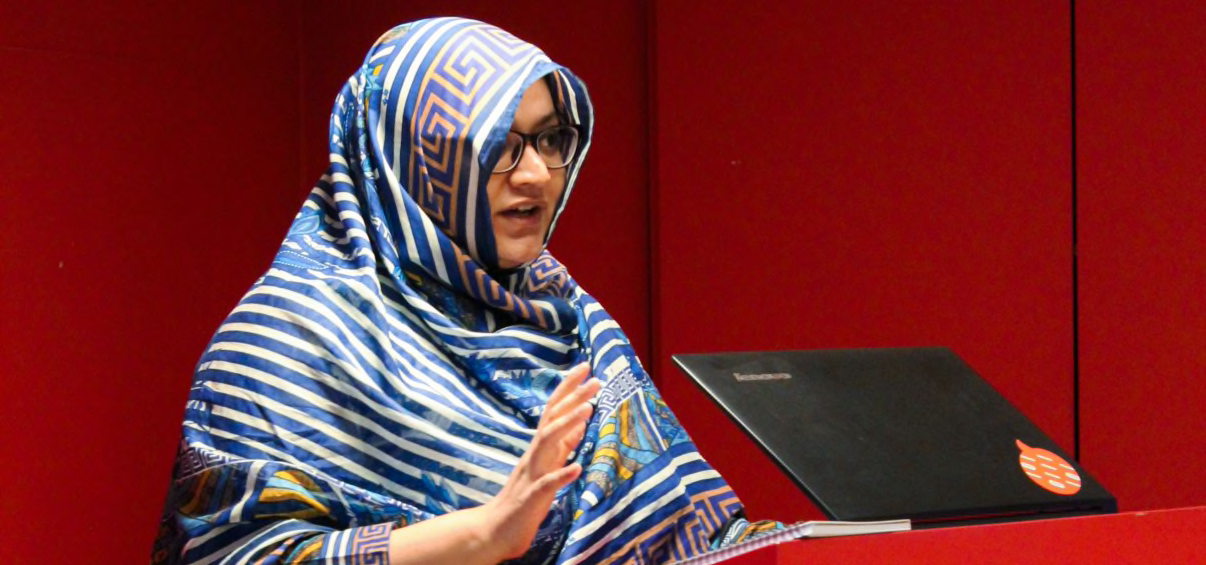
Early in Faiza Yousuf’s career, she was often the only female tech employee at her company. She’s determined to help other women in Pakistan avoid that same lonely path. As a senior product manager at Genentech, the founder of WomenInTechPK, co-founder of CodeGirls, and program director of CaterpillHERs, Faiza is empowering women in tech and opening the door for more to enter the field. Faiza joined Logitech MX for the #WomenWhoMaster series to talk about why and how she advocates for gender inclusion.
Q: To start, how do you describe your experience and work in tech?
I am based in Karachi, Pakistan, and have been in the tech industry for over 12 years. In the past six years, I have been working very actively for gender inclusion in tech, and am associated with multiple initiatives around that. Other than that, my day job is product development manager at Genentech, a software solutions company.
Q: Will you share more about how your gender inclusion initiatives are shaping the narrative for the future of women in STEM?
Two big parts of what I am doing are raising visibility and building a community for women. Women have contributed in a lot of areas in tech. They've done lots of unrecognized work. I am bringing more visibility to women working in tech so other women can see it and know they too can do the same thing.
More visibility creates a community for women. I've spent much of my career without any female colleagues.
"For the first three or four years of my career, I was usually the only woman in the organization. Not in the room, not in the team – the whole organization."
When there were no other women around, I had no guide. There was nobody to ask a question. There was nobody to tell me, "What is happening to you, Faiza, it's harassment. It shouldn't happen.” My collaborators and I want a community for women so that they can find peers and mentors.
Q: Did you always want a career in engineering? Did you consider other careers?
I was interested in botany for a while, but once I became interested in computers, I never looked back. Part of the reason is computers helped me with my learning disability. I have dyslexia, so other fields were comparatively difficult to study. But understanding computers or programming languages came naturally.
Q: In 2016, you founded WomenInTechPK, a women-only community where members can find professional support, advice, mentors and opportunities. Why did you start the group?
I started WomenInTechPK when I was a visiting professor at a university. At the university, the number of girls in the classroom was very low: there were maybe 60 boys and 7 or 8 girls in the classroom. The girls were very quiet and never contributed to any classroom discussion.
One day when all the boys were out of the class I asked the girls, "Are you happy with the class? I want to know more about you." In that discussion, I found out that they did not see a future for themselves in engineering because they didn’t know any women who worked in the engineering field.
I started WomenInTechPK because I wanted to connect those students to the women that I know who have been working in tech for years, building amazing products and services for customers all around the globe. It's been six years and we have nearly 10,000 members, all women tech workers from Pakistan.
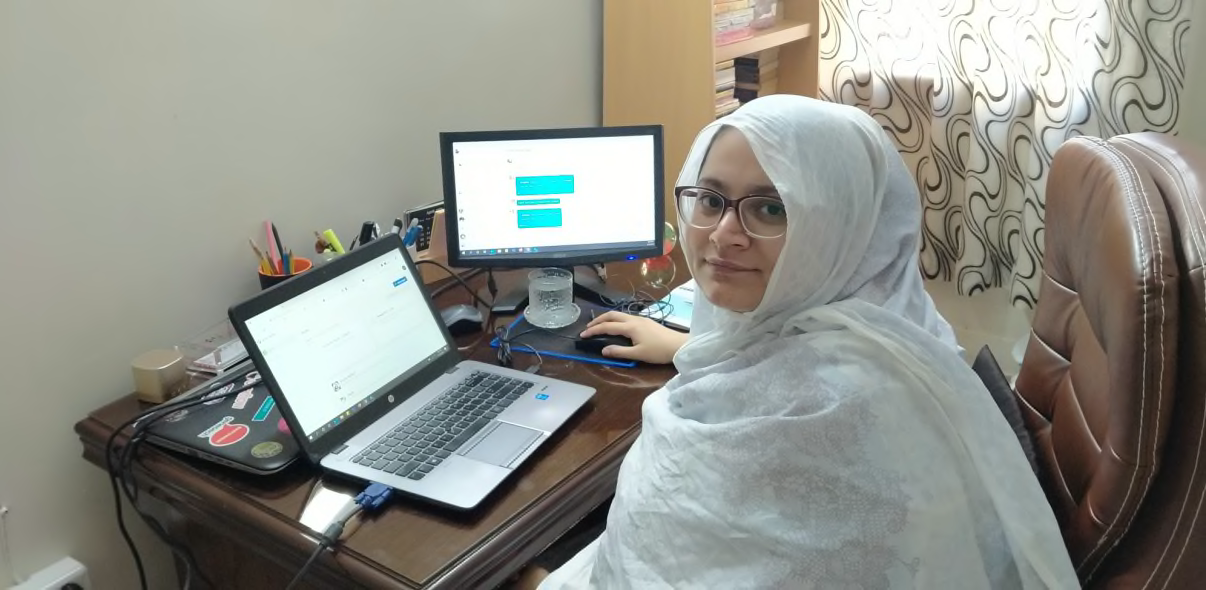
Q: How else does CodeGirls impact the lives of women?
Code Girls is an onsite coding boot camp in Karachi for women 18 years old and older. It’s the result of a partnership between WomenInTechPK and two other organizations. So far we have over 800 graduates and have placed over 200 women from non-technical backgrounds into IT jobs.
We have a lot of women from medium-to-low income families who participate in CodeGirls. When a girl graduates from the program, we place her in a job in the tech industry. In most cases, this doubles the family’s income. The kind of impact that brings, in terms of the woman having a say in the family because she's the one making more money and contributing to the family, it's amazing to witness. Because of these programs we have seen women be able to buy cars, buy houses and get their children into better schools.
Q: How do other initiatives you are involved in, such as CryptoChicks and CaterpillHERs, support women and girls in STEM?
I work as a country ambassador for CryptoChicks, a nonprofit based in Canada. The founding team, all women, started the organization to encourage more women to get into emerging tech, such as blockchain and AI (artificial intelligence). Through online programs, online hackathons, conferences and other opportunities, we make sure that women in Pakistan get access to emerging tech, learning opportunities and work opportunities.
I’m also the program director for CaterpillHERs. CaterpillHERs is an entrepreneurship and career accelerator program. We help women with scaling their businesses and climb up the career ladder by skilling up. Our verticals include entrepreneurship, freelancing, product management, and freelancing.
Q: Ten years from now, what do you want to see in the tech industry?
Right now Pakistan is basically a service shop. We mostly build technology for countries all around the globe. But a lot of Pakistan's government and private sector infrastructure is behind because the solutions are not localized. I would like to see us build technology for ourselves.
I would also like to see more diverse people in tech; not just women, but trans people, people with different abilities, and people who are not neurotypical. There is a lack of diverse voices. Employers feel that they have no incentives to hire a diverse workforce so they don’t invest in that and there are no government-sanctioned jobs for people from these communities.
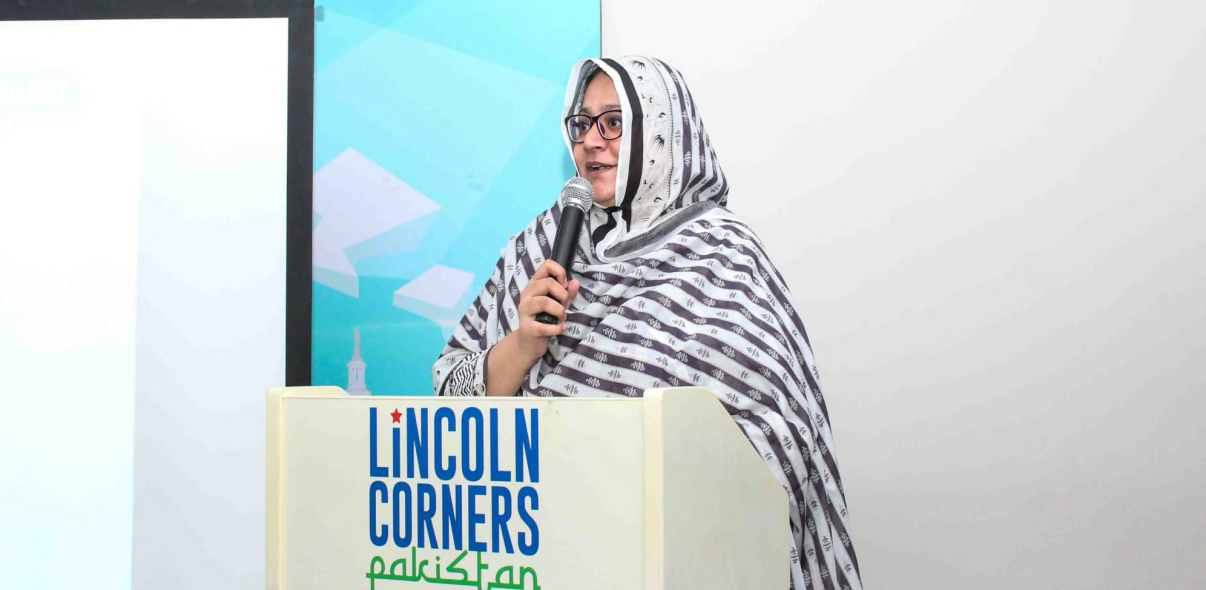
Q: What advice from a mentor has stuck with you?
Because of my dyslexia, there are things that I need to work twice as hard to understand. When I would get frustrated, one of my teachers would tell me to think of it as taking a scenic route instead of a short route. She encouraged me to enjoy the process.
"I realized that it's okay, even if it takes me a while to get there; intelligence is not just about being able to do everything very quickly."
You can learn more about Faiza at her website. Connect with Faiza on Twitter, LinkedIn, or Instagram. Stay up to date on the latest from WomenInPKTech, CodeGirls, and CaterpillHERS.
Women Who Master puts a spotlight on women who have made outstanding contributions to STEM fields. The goal of the series is to celebrate those contributions, inspire future leaders, and help close the gender gap in technology.
Photo credit: Faiza Yousuf
#WOMENWHOMASTER
MEET THE MASTERS AT THE FOREFRONT OF STEM
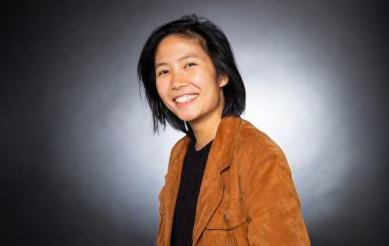
Gabby Llanillo
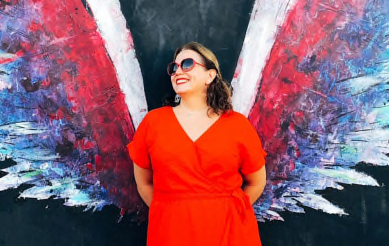
Sara Inés Calderón

Aisha Bowe

CODECADEMY AND LOGITECH
Partnering to inspire the builders of tomorrow, MX Series and Codecademy give you the tools needed to build, scale, and code to your fullest potential. Learn essential coding, programming, and AI skills to reimagine the future of tech with one free month of Codecademy Pro.

Women Who Master
Logitech MX is committed to spotlighting and supporting impactful initiatives and individuals that are disrupting the industry worldwide, to inspire girls and women to pursue a career or continue thriving in STEM.
With #WomenWhoMaster, our mission is to ignite an industry-wide movement that addresses the gender gap and unequal access to opportunities in tech and IT, once and for all.